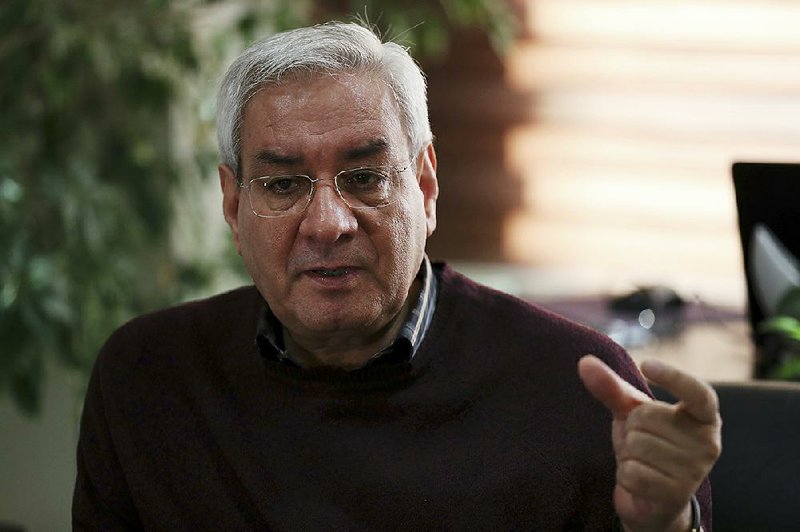TEHRAN, Iran -- His revolutionary fervor diminished by the years that have also turned his dark-brown hair white, one of the Iranian student leaders of the 1979 U.S. Embassy takeover says he now regrets the seizure of the diplomatic compound and the 444-day hostage crisis that followed.
Speaking to The Associated Press ahead of Monday's 40th anniversary of the attack, Ebrahim Asgharzadeh acknowledged that the repercussions of the crisis still reverberate as tensions remain high between the U.S. and Iran over Tehran's collapsing nuclear deal with world powers.
Asgharzadeh cautioned others against following in his footsteps, despite the takeover becoming enshrined in hard-line mythology. He also disputed a revisionist history now being offered by supporters of Iran's Revolutionary Guard that the force directed the attack, insisting all the blame rested with the Islamist students who let the crisis spin out of control.
"Like Jesus Christ, I bear all the sins on my shoulders," Asgharzadeh said.
At the time, what led to the 1979 takeover remained obscure to Americans who for months could only watch in horror as TV newscasts showed Iranian protests at the embassy. Popular anger against the U.S. was rooted in the 1953 CIA-engineered coup that toppled Iran's elected prime minister and cemented the power of Shah Mohammad Reza Pahlavi.
The shah, dying of cancer, fled Iran in February 1979, paving the way for its Islamic Revolution. But for months, Iran faced widespread unrest ranging from separatist attacks, worker revolts and internal power struggles. Police reported for work but not for duty, allowing chaos like Marxist students briefly seizing the U.S. Embassy.
Like other former students, Asgharzadeh said the plan had been simply to stage a sit-in. But the situation soon spun out of their control. Ayatollah Ruhollah Khomeini, the long-exiled Shiite cleric whose return to Iran sparked the revolution, gave his support to the takeover. He would use that popular angle to expand the Islamists' power.
"We, the students, take responsibility for the first 48 hours of the takeover," Asgharzadeh said. "Later, it was out of our hands since the late Supreme Leader Ayatollah Ruhollah Khomeini and the establishment supported it."
He added: "Our plan was one of students, unprofessional and temporary."
As time went on, it slowly dawned on the naive students that Americans wouldn't join their revolution. While a rescue attempt by the U.S. military would fail and President Jimmy Carter would lose to Ronald Reagan because of the crisis, the U.S. as a whole expressed worry about the hostages by displaying yellow ribbons and counting the days of their captivity.
As the months passed, things only got worse. Asgharzadeh said he thought it would end once the shah left America or later with his death in Egypt in July 1980. It didn't.
"A few months after the takeover, it appeared to be turning into a rotten fruit hanging down from a tree and no one had the courage to take it down and resolve the matter," he said. "There was a lot of public opinion support behind the move in the society. The society felt it had slapped America, a superpower, on the mouth and people believed that the takeover proved to America that their democratic revolution had been stabilized."
It hadn't, though. The eight-year Iran-Iraq War would break out during the crisis. The hostage crisis and later the war boosted the position of hard-liners who sought strict implementation of their version of Islamic beliefs.
In the years since, Asgharzadeh has become a reformist politician and served prison time for his views. He has argued that Iran should work toward improving ties with the U.S., a difficult task as President Donald Trump wages a maximalist campaign against Tehran.
"It is too difficult to say when the relations between Tehran and Washington can be restored," Asgharzadeh said. "I do not see any prospect."
Information for this article was contributed by Jon Gambrell in Dubai of The Associated Press.
A Section on 11/03/2019
